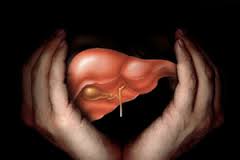- Home
- Editorial
- News
- Practice Guidelines
- Anesthesiology Guidelines
- Cancer Guidelines
- Cardiac Sciences Guidelines
- Critical Care Guidelines
- Dentistry Guidelines
- Dermatology Guidelines
- Diabetes and Endo Guidelines
- Diagnostics Guidelines
- ENT Guidelines
- Featured Practice Guidelines
- Gastroenterology Guidelines
- Geriatrics Guidelines
- Medicine Guidelines
- Nephrology Guidelines
- Neurosciences Guidelines
- Obs and Gynae Guidelines
- Ophthalmology Guidelines
- Orthopaedics Guidelines
- Paediatrics Guidelines
- Psychiatry Guidelines
- Pulmonology Guidelines
- Radiology Guidelines
- Surgery Guidelines
- Urology Guidelines
New liver transplant technology to replace cold preservation technique

A new state-of-the-art liver transplant technology will replace the cold preservation technique and keep liver alive up to 24 hours after it has been removed from the donor, says a doctor from Medanta Institute of Liver Transplantation, and Scientific Advisor to OrganOx (Oxford, UK).
The new technology will keep liver alive outside the body before transplantation, Dr A S Soin, Chairman and Chief Surgeon, Medanta Institute of Liver Transplantation, and Scientific Advisor to OrganOx (Oxford, UK).
OrganOx and its partner in India, Duraent Lifesciences, have come up with a new state-of-the-art liver transplant technology, a groundbreaking procedure called Normothermic Machine Perfusion (NMP) that will replace the cold preservation technique and keep the organ alive up to 24 hours after it has been removed from the donor.
The procedure has been developed by OrganOx, a company spun out of the University of Oxford.
Offering a totally new approach, NMP technology pumps oxygenated blood and nutrients into the liver and helps in overcoming the risk of graft injuries associated with preservation in ice.
Being deployed for the first time in India and Asia, the machine will help newly donated livers by brain dead donors to survive longer and, crucially, enable doctors to test how well they function while on the machine prior to transplant, boosting the chances of successful transplantation.
Dr AS Soin, Chairman and Chief Surgeon, Medanta Institute of Liver Transplantation, and Scientific Advisor to OrganOx (Oxford, UK), said, ''The machine is one of the most important advances in organ transplantation in the last 20 years. Livers maintained on NMP prior to transplant will work better, making the transplants safer. This technology will also help in transporting the liver easily from one place to the other as the machine can keep the organ alive for up to 24 hours. Another advantage is that many of the organs that we turned down for transplant purposes due to mild damage, can now be revived using this technology. We hope that with NMP now available in India, 30 percent more transplants would be possible, with improved results.''
The first transplant in India took place on last month at Aster CMI Hospital in Bengaluru on a 56-year-old patient. The patient made a quick recovery and was discharged in a couple of weeks.
Mr Subith Kumar, CEO, Duraent Lifesciences, Hyderabad, said, ''Earlier, the harvested livers were flushed with preservation fluid and then stored on ice, at times resulting in damage of the cells, especially when preserved for more than 10-12 hours. With the introduction of this new technology, we believe that doctors will get livers for transplantation without such damage. The machine helps to improve tissue quality and reduces the discard rate of organs that are suitable for transplantation. We hope this will enable many more life-saving liver transplants for patients suffering from liver failure.

Disclaimer: This site is primarily intended for healthcare professionals. Any content/information on this website does not replace the advice of medical and/or health professionals and should not be construed as medical/diagnostic advice/endorsement or prescription. Use of this site is subject to our terms of use, privacy policy, advertisement policy. © 2020 Minerva Medical Treatment Pvt Ltd